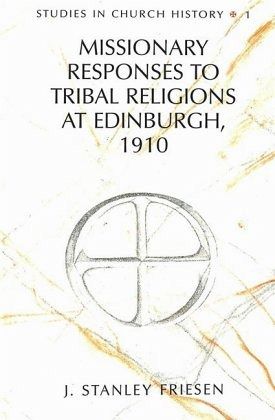Nicht lieferbar

Missionary Responses to Tribal Religions at Edinburgh, 1910
Versandkostenfrei!
Nicht lieferbar
One of the most notable achievements of Christian missionaries during the last quarter of the nineteenth century was their contribution to the emerging disciplines of anthropology and the comparative study of religion particularly in tribal societies. This study focuses on the twentieth century missionary landmark, the First World Missionary Conference at Edinburgh in 1910. This study breaks new ground by describing five models that demonstrate the range with which missionaries of the Imperialist Era (1880-1920) interpreted tribal religious traditions in relation to the Christian message. Frie...
One of the most notable achievements of Christian missionaries during the last quarter of the nineteenth century was their contribution to the emerging disciplines of anthropology and the comparative study of religion particularly in tribal societies. This study focuses on the twentieth century missionary landmark, the First World Missionary Conference at Edinburgh in 1910. This study breaks new ground by describing five models that demonstrate the range with which missionaries of the Imperialist Era (1880-1920) interpreted tribal religious traditions in relation to the Christian message. Friesen's study reflects both an interdependence and a critique of the political, religious and anthropological spirit of the times.



